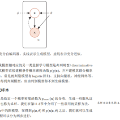Generative modeling seeks to approximate the statistical properties of real data, enabling synthesis of new data that closely resembles the original distribution. Generative Adversarial Networks (GANs) and Denoising Diffusion Probabilistic Models (DDPMs) represent significant advancements in generative modeling, drawing inspiration from game theory and thermodynamics, respectively. Nevertheless, the exploration of generative modeling through the lens of biological evolution remains largely untapped. In this paper, we introduce a novel family of models termed Generative Cellular Automata (GeCA), inspired by the evolution of an organism from a single cell. GeCAs are evaluated as an effective augmentation tool for retinal disease classification across two imaging modalities: Fundus and Optical Coherence Tomography (OCT). In the context of OCT imaging, where data is scarce and the distribution of classes is inherently skewed, GeCA significantly boosts the performance of 11 different ophthalmological conditions, achieving a 12% increase in the average F1 score compared to conventional baselines. GeCAs outperform both diffusion methods that incorporate UNet or state-of-the art variants with transformer-based denoising models, under similar parameter constraints. Code is available at: https://github.com/xmed-lab/GeCA.
翻译:暂无翻译



